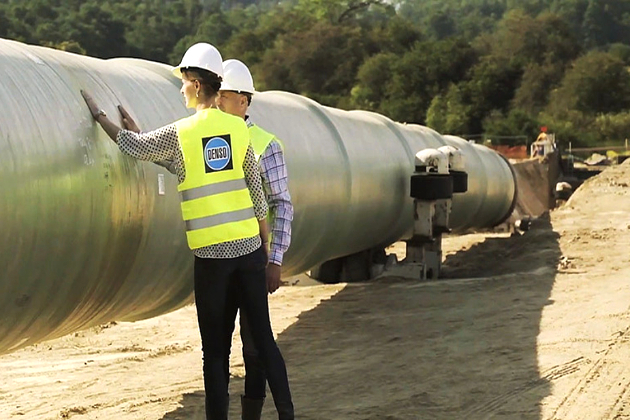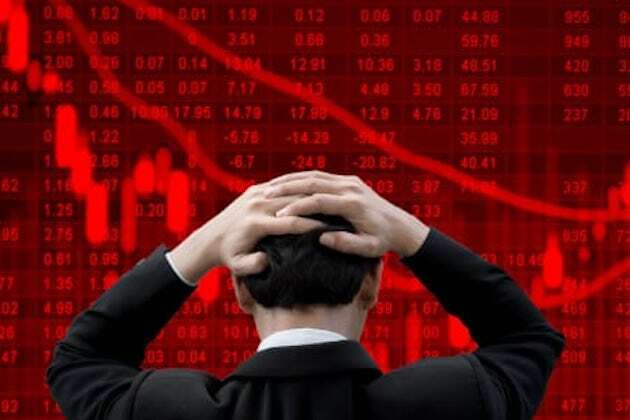Hawaii Supreme Court rejects Big Island bioenergy plant
CN
14 Mar 2023, 22:57 GMT+10

HONOLULU (CN) - The Hawaii Supreme Court has once again blocked a bioenergy company's decadelong bid to kick off operations for a renewable biomass plant on Hawaii's Big Island, upholding the Public Utilities Commission rejection of a power purchase agreement between Hu Honua Bioenergy and Hawaiian Electric Company.
"The PUC understood its public interest-minded mission. It faithfully followed our remand instructions to consider the reasonableness of the proposed project's costs in light of its greenhouse gas emissions and the project's impact on intervenor Life of the Land's members' right to a clean and healthful environment," Supreme Court Justice Todd Eddins wrote in a Monday ruling.
The commission and other detractors fought against the eucalyptus-burning power plant, saying the company hasn't properly answered for potential environmental and public health risks associated with the massive amounts of harmful carbon dioxide that would be released by the project or addressed the potential in increased energy costs for Big Island residents.
Although the power purchase agreement was initially approved by the commission in 2013, opposition from environmental group Life of the Land stymied operations, prompting years of contentious litigation all the way to the Supreme Court thrice.
The latest clash between the parties resulted from a May 2022 report from the commission that determined the bioenergy company has been unable to provide a sufficient proposal for how they plan to mitigate greenhouse gas emissions generated from the wood burning.
The decision comes after a February appeal from Hu Honua Bioenergy and Hawaiian electric against the commission, Life of the Land, the already operational renewable Tawhiri Power Company, and the state Department of Commerce and Consumer Affairs.
The court ultimately found Hu Honua's plan for carbon sequestration unconvincing.
"The reality is that yesterday's good enough has become today's unacceptable," Judge Eddins wrote. "The PUC was under no obligation to evaluate an energy project conceived of in 2012 the same way in 2022."
Hu Honua's power plant, originally a sugarcane processing plant located in Pepe'ekeo several miles north of Hilo, intends to burn eucalyptus trees to generate power to be sold to Hawaiian Electric. By the company's own estimation, this would generate over 8 million metric tons of carbon emissions over 30 years.
Hu Honua then proposed to offset these massive amounts of greenhouse gases by planting trees - enough trees, the company postulated, that the project could become not only carbon neutral, but carbon negative. Eddins dismissed the company's argument that its operations ought to be weighed only against fossil fuel emissions.
"If the PUC couldn't consider Hu Honua's relative impacts and the likelihood that it would supplant other renewable projects, it would be forced to treat a project expected to emit millions of metric tons of carbon as no different from a project expected to emit almost no carbon, merely because both draw on renewable energy sources," he wrote.
Hu Honua has maintained it remains completely ready to begin operations while keeping with both its carbon neutrality and affordability promises.
Hu Honua president Warren Lee expressed disappointment in the decision. "We believe this decision sets back Hawai'i's renewable energy transition and results in Big Island residents having to continue to pay high energy rates mostly based on expensive fossil fuel oil, while increasing the likelihood of grid instability and more blackouts," Lee said in a statement.
Hu Honua's legal team, led by Honolulu attorney Bruce Voss, had also taken issue with the commission addressing a potential $10.97 price increase for consumers. The court called this argument "difficult to understand."
"Based on the straightforward language of the remand order, the PUC was not only at liberty to consider pricing, it was required to consider the reasonability of the project's pricing in light of its GHG emissions," Eddins wrote.
The court also criticized Hu Honua's claim that the commission held them to an unfair evidentiary standard in addressing its carbon neutrality claims.
Eddins agreed with the commission's carbon calculations, which they based off of Hu Honua's own data, explaining that if carbon neutrality could be reached under the proposal as the bioenergy company implied - which he expressed doubts about - it would be well after the deadline set in Hawaii's pledge to reach 100% zero emissions statewide by 2045.
Several other renewable energy projects have already been put in place throughout the state. The Big Island, according to the utility itself, reached 60% renewable energy in 2022 through a mix of primarily solar, wind, and geothermal power.
In a concurring opinion, Justice Michael Wilson emphasized the environmental concerns. "Our review of the PUC's decision is done with due regard for the climate emergency it faces on behalf of the people of Hawaii. Anthropogenic global warming - caused by the emission of greenhouse gases such as CO2 - has been described as a sui generis emergency."
Source: Courthouse News Service
 Share
Share
 Tweet
Tweet
 Share
Share
 Flip
Flip
 Email
Email
Watch latest videos
Subscribe and Follow
Get a daily dose of Hawaii Telegraph news through our daily email, its complimentary and keeps you fully up to date with world and business news as well.
News RELEASES
Publish news of your business, community or sports group, personnel appointments, major event and more by submitting a news release to Hawaii Telegraph.
More InformationInternational
SectionChina hits Canadian agriculture with tariffs in trade retaliation
BEIJING, China: China has announced new tariffs on Canadian agricultural and food products in retaliation for Canada's recent duties...
One dead, three injured as RV flips in Texas storm
ENNIS, Texas: A man died, and three of his family members were injured when their RV flipped several times during a strong storm at...
Man not the product of evolution, world-acclaimed naturalist argued
One halcyon spring day in 1903, the 69-year-old anatomist and naturalist Dr. James Bell Pettigrew sat at the top of a sloping street...
Fighter jets intercept plane near Trump’s Florida home
WEST PALM BEACH, Florida: Air Force fighter jets have stopped a civilian plane that entered restricted airspace near Donald Trump's...
US farmers face bankruptcy, economic uncertainty due to USDA freeze
CHICAGO/WASHINGTON, D.C.: Farmers and food groups across the U.S. are laying off workers, stopping investments, and struggling to get...
South Dakota law blocks eminent domain for carbon pipelines
SIOUX FALLS, South Dakota: A new South Dakota law banning the use of eminent domain for carbon capture pipelines has cast doubt on...
Business
SectionVolkswagen to slash 1,600 jobs at Cariad by year-end
BERLIN, Germany: Volkswagen is set to cut 1,600 jobs at its Cariad software division by the end of the year, affecting nearly 30 percent...
Travel to and from Israel to be boosted by terminal reopening
The principal terminal, Terminal 1, at Israel's largest airport will reopen at the end of this month, having largely been closed since...
Tech stocks lead renewed selling on Wall Street
NEW YORK, New York - The knee-jerk introduction of trade tariffs by President Donald Trump continues to rattle markets with all the...
Ford to invest up to $4.8 billion to revive struggling German unit
FRANKFURT, Germany: Ford announced this week that it will inject up to $4.8 billion into its struggling German unit to stabilize its...
Boeing links worker bonuses to company-wide performance
SEATTLE, Washington: Boeing has revamped its employee incentive plan, tying annual bonuses for more than 100,000 workers to overall...
US, Canadian farmers face rising fertilizer costs amid trade tensions
WINNIPEG, Manitoba: Farmers in the U.S. and Canada are bracing for soaring fertilizer prices as trade tensions escalate between the...













